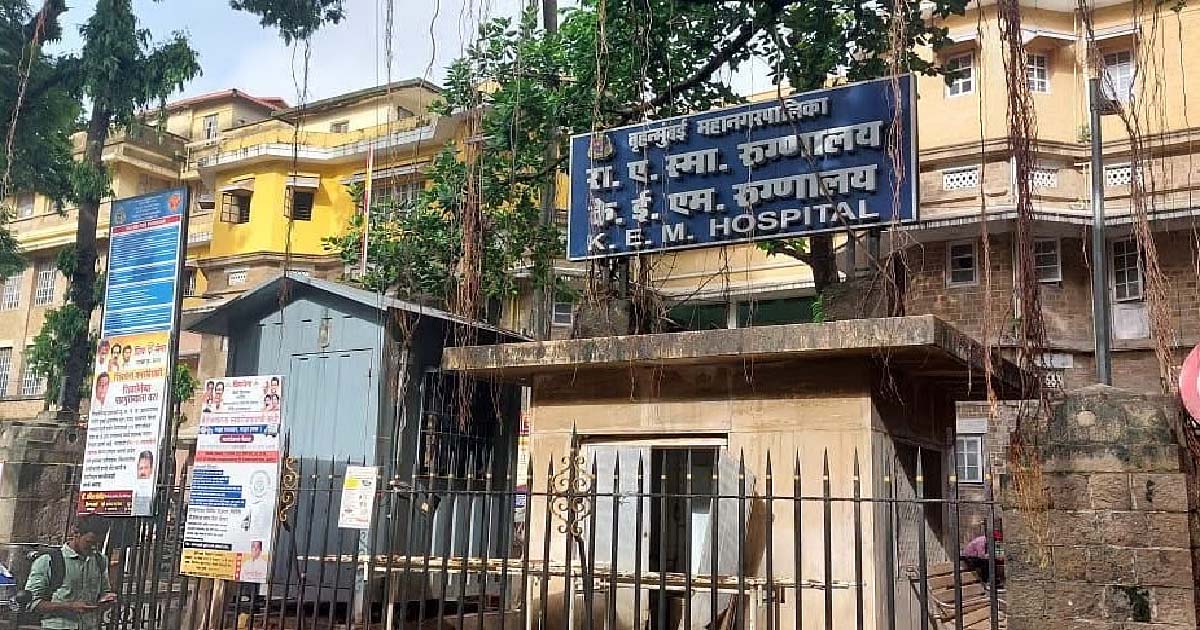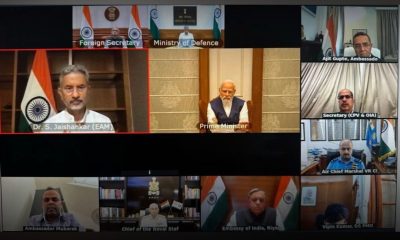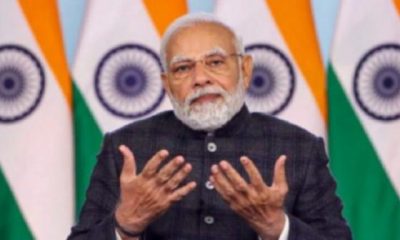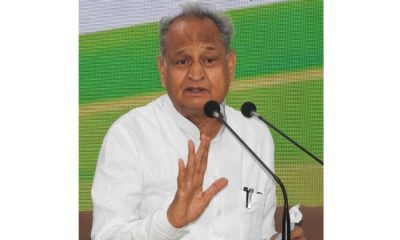National News
Modi appeals to farmers to adopt natural farming
Prime Minister Narendra Modi on Thursday once again appealed to farmers to adopt natural farming and also called for strengthening the dairy sector.
The Prime Minister, who was in Varanasi to inaugurate the Banas Dairy Kashi Sankul at Karkhiyaon, said that natural farming required less inputs, gave better output and was more beneficial because it earned higher returns.
“This method will make farming ‘atmanirbhar’. Those working in startups should also explore possibilities for this,” he stated.
Talking about the dairy sector, he said that the cow is our mother and held in high esteem. Those who ridicule this concept should know that India produces milk worth Rs 8.5 lakh crore every year which is more than the production of wheat or rice.
He said that in villages, cows were a sign of prosperity.
“We need to strengthen the dairy sector. The Banas Kashi Sankul will benefit dairy farmers from several adjoining districts. The dairy plant will also have a bio-gas plant that will take care of its power needs. The dairy farmers will now be able to sell cow dung for the bio-gas plant at a good price,” he said.
The Prime Minister said that milk committees and collection centres would be set up and certification of purity would also be done.
“Now the sweets of Banaras will taste sweeter – whether it is lassi or chhena sweets or ‘malaiyo’ in winter. The dairy plant will enhance the taste of Banaras,” he added.
He will also inaugurate and lay the foundation of 22 other projects.
The Prime Minister was in Varanasi earlier on December 13 to unveil the Kashi Vishwanath Dham Corridor project.
According to the official spokesperson, Modi will also digitally transfer a bonus of about Rs 35 crore to the bank accounts of more than 1.7 lakh milk producers associated with the Banas Dairy.
The Prime Minister said that the double engine governments had ensured double development, and this was obviously unacceptable to ‘some people’ whose politics was based on ‘mafiawad’, parivarwad’ and ‘jaatiwad’.
Earlier, the Prime Minister launched a portal and a logo dedicated to the Conformity Assessment Scheme of milk products, developed by the Bureau of Indian Standards (BIS) with the help of the National Dairy Development Board (NDDB).
The unified logo, featuring both the BIS logo and the NDDB quality mark, will simplify the certification process for the dairy sector and reassure the public about dairy product quality.
In another effort to reduce the number of land ownership issues at the grassroots level, the Prime Minister also virtually distributed the rural residential rights record, “Gharauni”, under the Swamitva scheme of the Union Ministry of Panchayati Raj to over 20 lakh residents of Uttar Pradesh.
Business
Indian stock market ends holiday-shortened week in positive terrain

Mumbai, Dec 27: Indian equity markets ended the week in a positive terrain, buoyed by expectations of stronger domestic demand, a favourable liquidity outlook and optimism over potential Fed policy easing in 2026, analysts said on Saturday.
The holiday-shortened week opened with a bullish undertone; however, momentum tapered off as the days progressed.
On Friday, Sensex closed at 85,041.45, slipping 367.25 points or 0.43 per cent. Nifty also ended in the red, falling 99.80 points or 0.38 per cent to settle at 26,042.30.
According to market watchers, the year-end lull kept trading largely range-bound, with hopes for a Santa Claus rally diminishing amid the absence of fresh catalysts, limited progress in US–India trade talks, and caution ahead of the upcoming earnings season.
“Sectoral trends were mixed, marked by selective profit booking across most segments, while metals, FMCG, and media stocks offered notable resilience,” said Vinod Nair, Head of Research, Geojit Investments Ltd.
Nifty 50 ended the week at 26,042, continuing to respect its long-term rising channel on the daily chart. The index remains comfortably above the 20-day EMA cluster, preserving the medium-term bullish structure, said analysts, adding that as long as Nifty sustains above the 26,000–25,900 support zone, the overall bias remains positive.
On the domestic front, RBI’s liquidity interventions, such as open market operations and a USD/INR buy–sell swap, helped stabilise the rupee, though persistent FII outflows continued to weigh on sentiment.
Meanwhile, gold advanced on safe-haven demand, while crude prices hovered near multi-year lows, though U.S. steps to tighten pressure on Venezuelan oil shipments could exert upward pressure in the near term
Looking ahead, market sentiment is likely to stay cautious as investors brace for the upcoming earnings season while remaining attuned to global developments and currency movements, said analysts.
Attention will also turn to next week’s data releases, including India’s industrial and manufacturing output figures, manufacturing PMI, and the US FOMC minutes, said Nair.
National News
Mumbai Weather Update For Dec 27, 2025: City Wakes Up To Haze-Filled Morning Skies; Overall Air Quality Remains Unhealthy At 246

Mumbai: witnessed a crisp and relatively cool start to Saturday, offering residents a brief break from the city’s usual humidity. Clear skies, mild winds and lower temperatures made the morning pleasant, encouraging many to step outdoors during the early hours. According to the India Meteorological Department (IMD), the minimum temperature was expected to hover around 18°C, while the maximum could touch 33°C, making it one of the more comfortable winter days this season.
However, the seemingly ideal weather masked a persistent environmental concern. A thin haze hung over several parts of the city, signalling continued deterioration in air quality. Data from air quality monitoring platform AQI.in showed Mumbai’s overall Air Quality Index (AQI) at 246 on Saturday morning, placing it firmly in the ‘unhealthy’ category. Such levels pose health risks, particularly for children, senior citizens and people suffering from respiratory ailments.
The sustained pollution, largely due to Mumbai’s ongoing infrastructure boom. Dust and fine particulate matter released from multiple large-scale government projects, including metro corridors, coastal road construction, bridge works and extensive road widening, continue to significantly impact air quality. In addition, numerous private real estate developments across the city add to the pollution burden, especially during winter months when dry conditions allow dust to remain suspended in the air for longer periods.
AQI readings across Mumbai revealed stark contrasts between different areas. Chembur emerged as the most polluted location, recording an alarming AQI of 326, categorised as ‘severe’. At such levels, even healthy individuals may experience breathing discomfort and other health effects. Sion followed closely with an AQI of 308, while Santacruz East recorded 303, both also falling in the ‘severe’ category. Charkop and Colaba reported AQI levels of 293 and 287, respectively, remaining dangerously close to the severe threshold.
Suburban areas fared slightly better, though air quality remained far from satisfactory. Jogeshwari East recorded an AQI of 130, while Govandi and Kandivali East stood at 160 each, all classified under the ‘poor’ category. Pollution levels worsened in other suburbs, with Borivali East registering an AQI of 200 and Malad West 217, both categorised as ‘unhealthy’.
For perspective, AQI values between 0 and 50 are considered ‘good’, 51–100 ‘moderate’, 101–150 ‘poor’, 151–200 ‘unhealthy’, and readings above 200 fall into the ‘hazardous’ range. Despite the pleasant winter weather, Mumbai’s air quality continues to be a pressing concern, underscoring the need for stricter dust-control measures and sustained environmental interventions.
National News
Mumbai: BMC-Run KEM Hospital Commissions Ultra-Modern Modular OTs For Heart Transplants And Complex Surgeries

Mumbai, Dec 26: Mumbai’s BMC-run KEM Hospital has strengthened its advanced healthcare infrastructure with the commissioning of ultra-modern steel modular operation theatres (OTs) designed for heart transplants and other complex surgeries. Following the completion of sterilisation protocols, cardiac surgeries have already commenced in the new facility.
The newly installed modular OTs feature steel walls, ceilings, frames and panels, making them resistant to dust, moisture and water. This design significantly improves cleanliness and simplifies sterilisation, thereby reducing the risk of post-operative infections.
“Equipped with laminar airflow systems and HEPA filters, the operation theatres ensure a continuous supply of clean, controlled air by filtering out bacteria, viruses, dust particles and other airborne contaminants,” said hospital officials, adding that the advanced setup will support not only heart transplants but also other organ transplants, surgeries for congenital disorders and complex paediatric procedures.
To further enhance efficiency, especially in emergency organ transplant cases, the hospital has developed special internal connectivity and separate entry points. These allow donor organs to be transported directly to the designated operation theatre, minimising time delays and reducing associated risks.
With this upgrade, KEM Hospital is expected to play a more significant role in organ transplantation and advanced surgical care in Mumbai and across Maharashtra.
-

 Crime3 years ago
Crime3 years agoClass 10 student jumps to death in Jaipur
-

 Maharashtra1 year ago
Maharashtra1 year agoMumbai Local Train Update: Central Railway’s New Timetable Comes Into Effect; Check Full List Of Revised Timings & Stations
-

 Maharashtra1 year ago
Maharashtra1 year agoMumbai To Go Toll-Free Tonight! Maharashtra Govt Announces Complete Toll Waiver For Light Motor Vehicles At All 5 Entry Points Of City
-

 Maharashtra1 year ago
Maharashtra1 year agoFalse photo of Imtiaz Jaleel’s rally, exposing the fooling conspiracy
-

 National News1 year ago
National News1 year agoMinistry of Railways rolls out Special Drive 4.0 with focus on digitisation, cleanliness, inclusiveness and grievance redressal
-

 Maharashtra1 year ago
Maharashtra1 year agoMaharashtra Elections 2024: Mumbai Metro & BEST Services Extended Till Midnight On Voting Day
-

 National News1 year ago
National News1 year agoJ&K: 4 Jawans Killed, 28 Injured After Bus Carrying BSF Personnel For Poll Duty Falls Into Gorge In Budgam; Terrifying Visuals Surface
-

 Crime1 year ago
Crime1 year agoBaba Siddique Murder: Mumbai Police Unable To Get Lawrence Bishnoi Custody Due To Home Ministry Order, Says Report


















